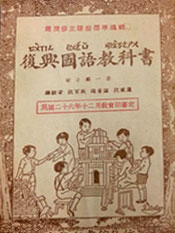The Archives & Special Collections has so many wonderful resources, and with these 17 newly published finding aids, you’ll be able to learn more about all the A&SC has to offer with a quick online search!
 Mss.022, Leroy Ostransky papers:
Mss.022, Leroy Ostransky papers:
Ostransky (1918-1993) was a Jazz composer, author, and a professor of music at the University of Puget Sound. The collection includes correspondence, audio recordings, musical scores and composition, and much more! Fun fact: Ostransky also wrote a memoir of his childhood spent in his father’s saloon in Manhattan’s Lower East Side during prohibition, entitled “Sharkey’s Kid: a memoir,” which can be found in the music section of Collins.
Mss.023, James R Slater papers:
James Slater may sound familiar, because he was the founder and director (1930-1951) of the Puget Sound Museum of Natural History, now the James R Slater Museum of Natural History. Slater served in the air force during WWI, taught biology at the College of Puget Sound from 1919-1950, and conducted research as a herpetologist, focusing on the reptiles and amphibians of the Pacific Northwest. This collection includes correspondence, photographs, certificates and diplomas, field guides, plant collecting index notes, maps, and materials pertaining to the Stanley G. Jewett mammal collection.
Mss.018, John D. Regester Collection on Albert Schweitzer:
John D. Regester was a professor of philosophy and Dean at the college of Puget Sound from 1924-1965, and wrote his dissertation (and eventually befriended) Albert Schweitzer, a German medical missionary, philosopher, and Noble Peace Prize winner (1952). Schweitzer operated a hospital in Lambarene, Gabon for 45 years, and during that time, Regester and Schweitzer corresponded, and Regester visited French Equatorial Africa twice to see Schweitzer. Regester’s collection is largely composed of pamphlets on Schweitzer, correspondence, and photos, and notably, African funeral relics from Schweitzer’s funeral.
Mss.043, W. Houston Dougharty collection: This collection contains ephemera collected by Puget Sound alum, W. Houston Dougharty.
Mss.005, John M. Canse Pamphlet Collection: This is one of my favorite collections! You may already be familiar with this collection, as the large poster sized advertisement that line the walls outside of the librarian’s offices are all taken from the pamphlet collection. John M. Canse was pastor for the University Methodist Episcopal Church in Seattle, Washington, during the Alaska-Yukon-Pacific Exposition of 1909 and collected a variety of pamphlets related to the NorthWest. This collection contains contains travel and settlement advertisements, maps, and historical documents about the American West from the end of the nineteenth century to the mid-twentieth century.
Stella Lily was a Tacoma area high school English teacher, a member of the Tacoma Writers club, and she belonged to the American Association of University Women. This collection contains periodicals, maps and pamphlets collected by Stella Lilly during a 1937 trip to the 7th World Education Conference in Tokyo, Japan.
Mss.020, Frank Williston papers:
Frank Williston was a specialist in Far Eastern affairs, particularly Japan and China, who taught at the College of Puget Sound (now University of Puget Sound) before World War II. This collection contains materials on the political, historical and economic conditions in China, Japan, Manchuria, Malaya, Burma, Korea, Indonesia, Vietnam and Southeast Asia. Of interest in this collection is the correspondence from the Nanking Theological Seminary during the Nanking Massacre in December 1937.
Want to take a look at some of these newly available resources? Stop by the A&SC during open hours during the semester on Tuesdays, Wednesdays, and Thursdays from 1:00-3:00 p.m. or email the Katie Henningsen to make an appointment.
This is just Part 1 – Stay tuned for more next week!
By Kara Flynn ‘15

